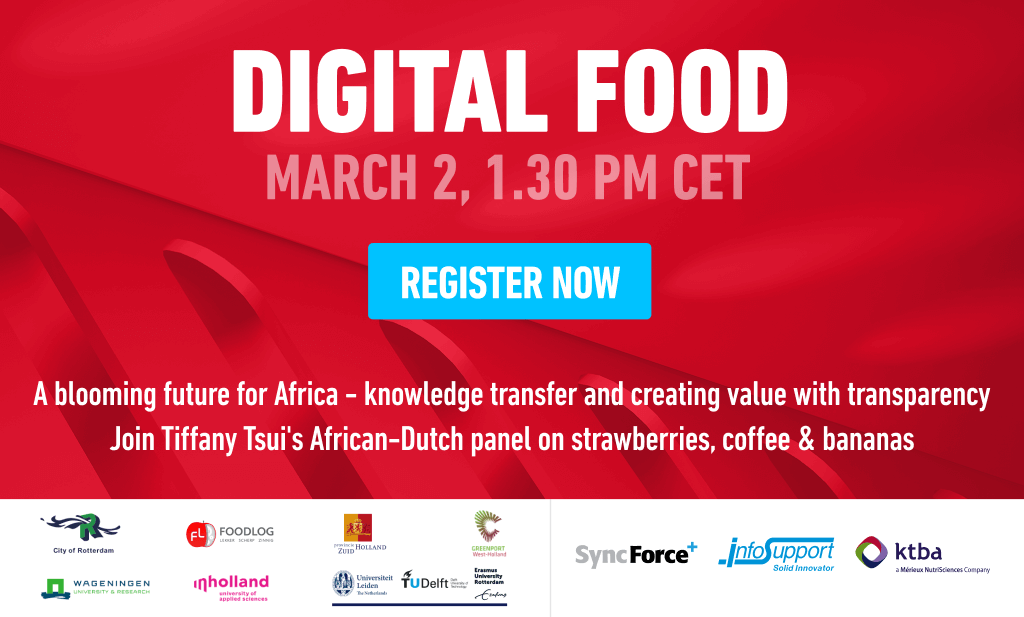Join us on Tuesday, March 2, from 1:30 PM till 2:15 PM (CET) + 45 more minutes of informality (if you care to stay on) for the fourth digital chat in the Digital Food series. Tiffany Tsui will ask flying strawberry maker Jan Robben about growing strawberries in Africa. Marjan de Bock-Smit (founder ImpactBuying, former CEO SIM Supply) will join to explain how an African coffee case can turn into a robust example for creating value with true transparency. Jan and Marjan will be joined by Victoria Madedor (African Farmers Stories) and Dr Ikechi Agbugba (Rivers State University, Nigeria) at Tiffany's virtual table to prepare our next case: sourcing bananas from TRUE coded farmers for a leading retailer.
After the digital core of the first chats, Tiffany now tries to find out what difference new approaches to digital identification can make in the life of small farmers, even if they can't read or write.
Hundreds of hectares of modern hightech horticulture developments spring out of the ground. It is not one of the large agro park projects being realised in China, says Tiffany who reported on having seen it with here own eyes. You'll find it in the tiny village of Ens, in the northern part of the Netherlands: Flevo Berry.
Horticulture is spreading out of the 'capital' of Dutch Horticulture, the Westland near Rotterdam, into other parts of the country and even to other parts of Europe. It is also spreading to Africa, creating jobs and autonomous earnings capacity in African agriculture on the continent itself.
Tiffany Tsui discusses with hands on expert Dutch strawberry grower and advisor Jan Robben, TRUE Code-developer Marjan de Bock-Smit, Victoria Madedor (African Farmers Stories) and Dr Ikechi Agbugba (Rivers State University, Nigeria) how recent border closures and travel and trade restrictions impact opportunities to develop new production facilities elsewhere.
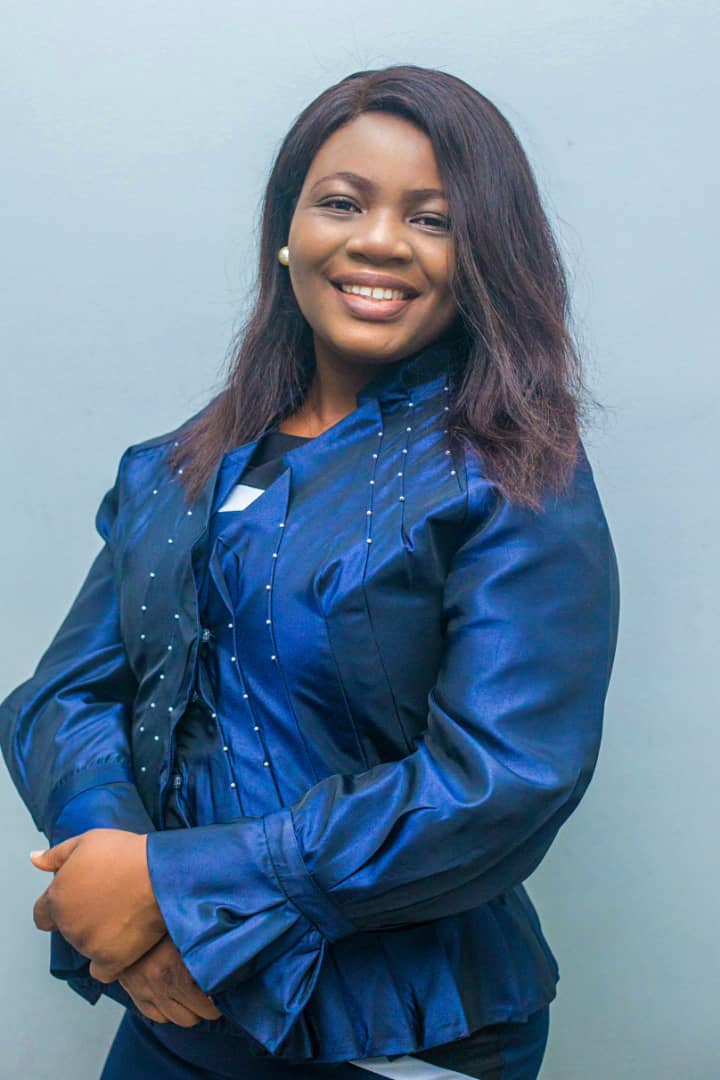 Victoria Madedor
Victoria Madedor
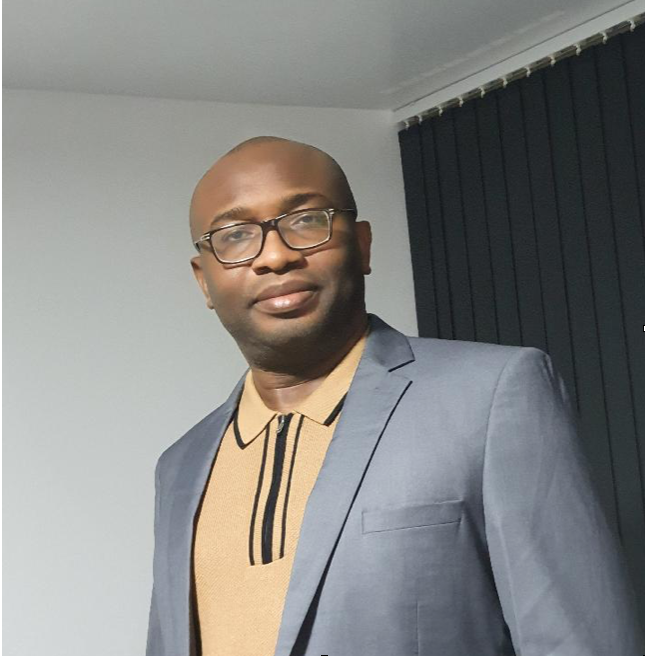 Ikechi Agbugba
Ikechi Agbugba
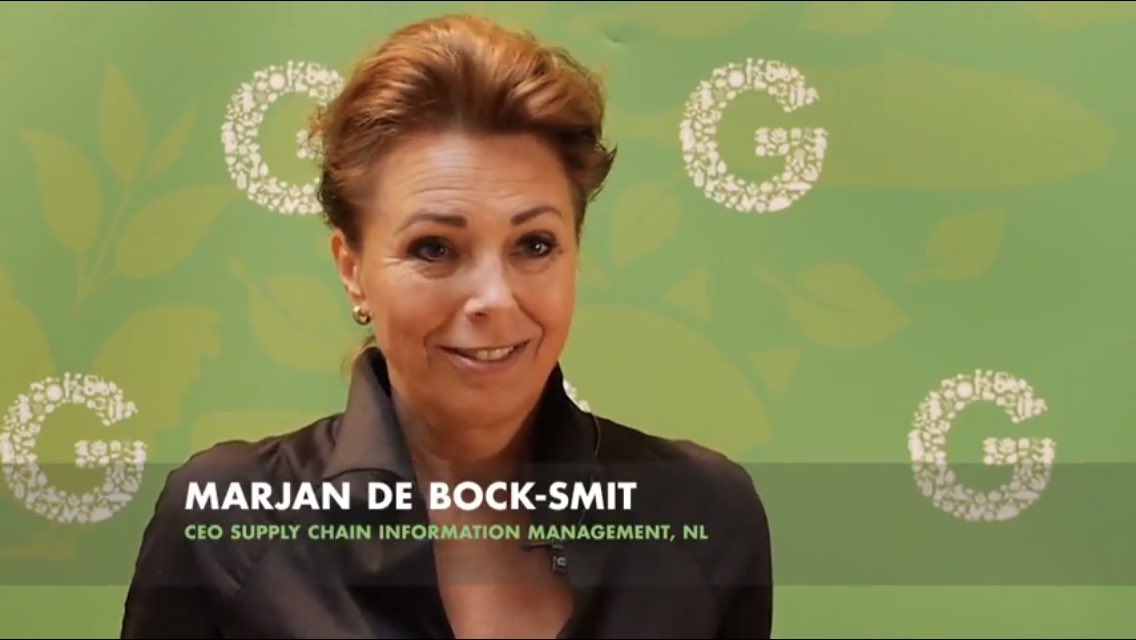
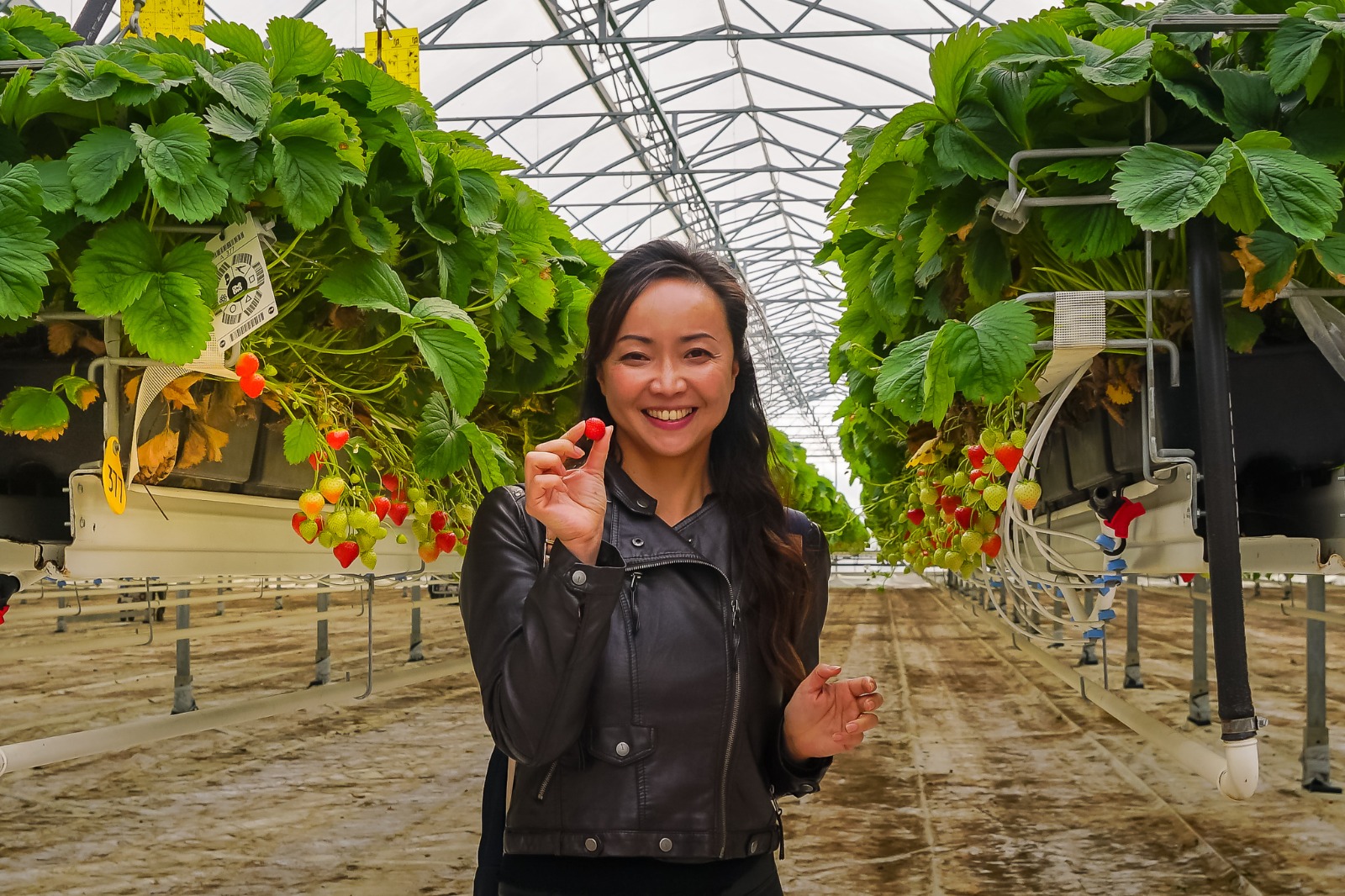 Tiffany Tsui at Flevo Berry
Tiffany Tsui at Flevo Berry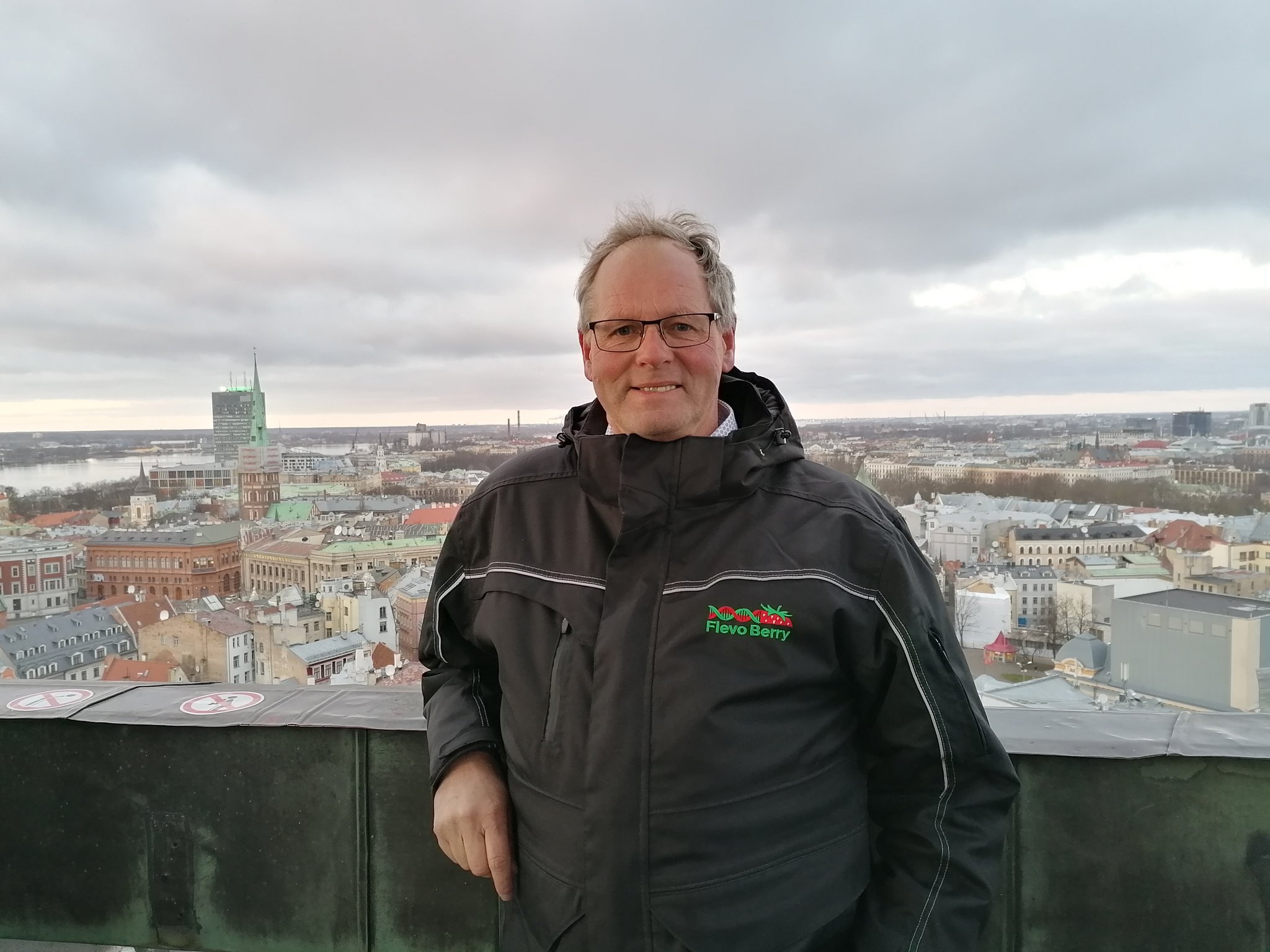 Jan Robben in Riga
Jan Robben in Riga
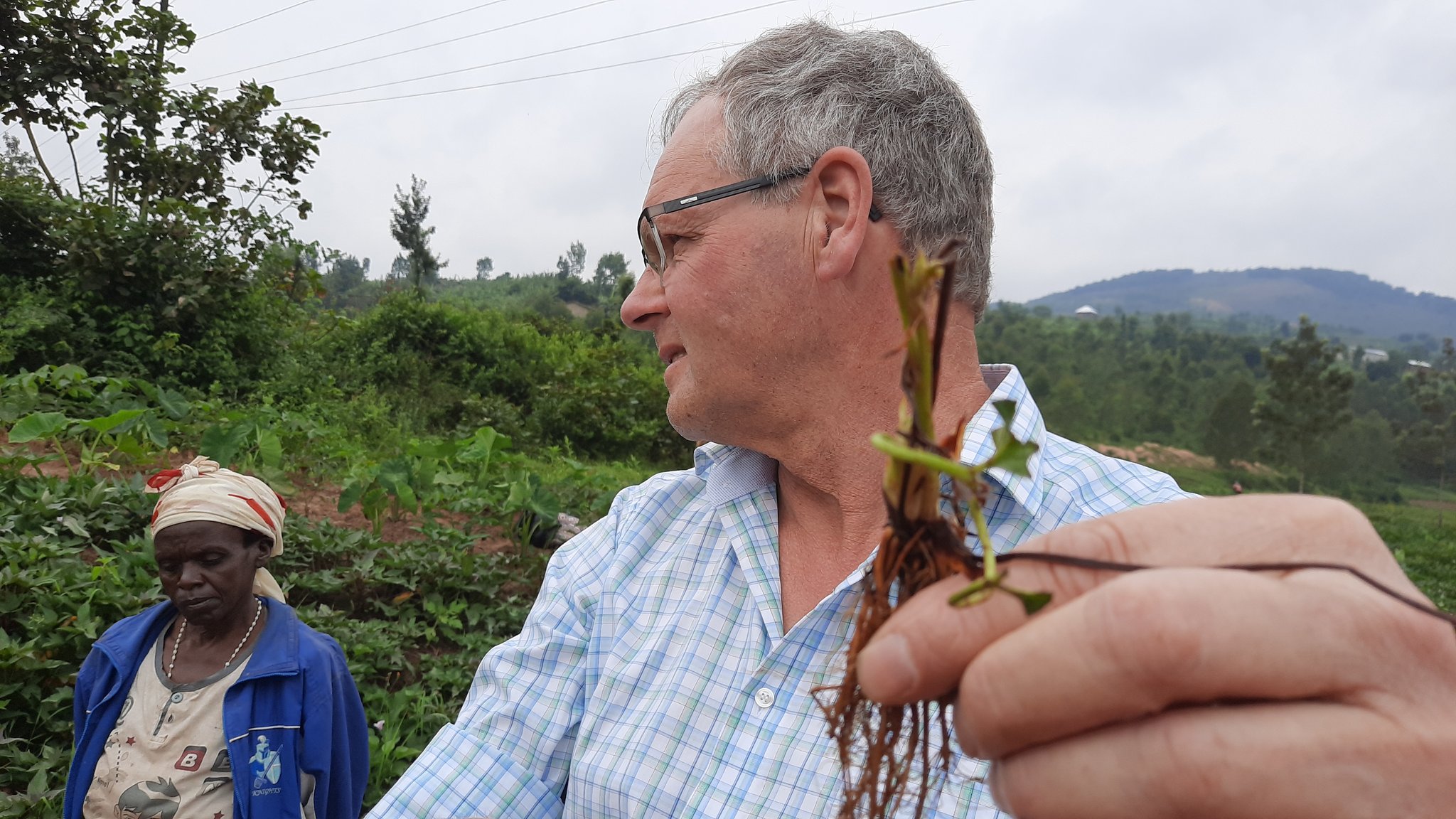
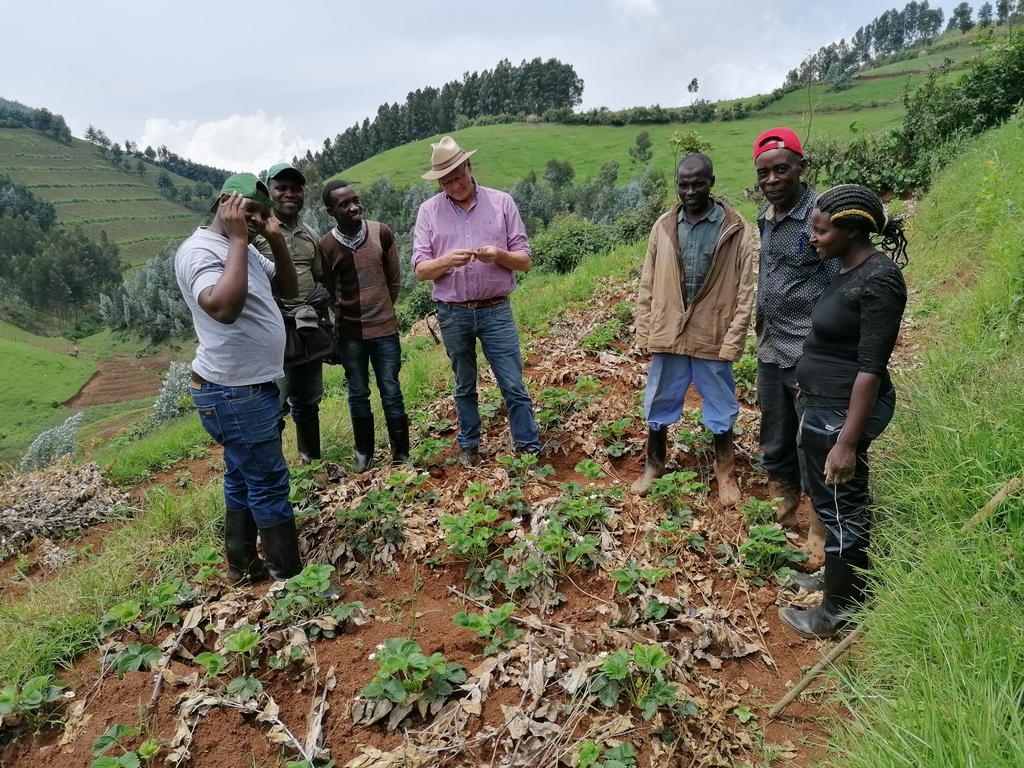 Jan Robben in Rutsiro, western Rwanda
Jan Robben in Rutsiro, western Rwanda
On behalf of Flevo Berry and Agriterra, Jan assists Rwandan strawberry growers. How does he transfer knowledge and practical knowhow in 2021? Who are the farmers and the workers? How do they reach out to their customers? How can Marjan's and the Consumer Goods Forum's True Code help them create value by true transparency at plot and farmer's level? Marjan will explain how a coffee case in Rwanda may turn into a robust example of the world to come: tracing beans or berries back to even the smallest farmer in the field and consumers far away being able to check with they got payed individually. The case will lead up to a new project Marjan intends to start in subsequent chat: how to create value by full TRUE coded transparency in bananas from Nigeria?
Horticulture is spreading out of the 'capital' of Dutch Horticulture, the Westland near Rotterdam, into other parts of the country and even to other parts of Europe. It is also spreading to Africa, creating jobs and autonomous earnings capacity in African agriculture on the continent itself.
Tiffany Tsui discusses with hands on expert Dutch strawberry grower and advisor Jan Robben, TRUE Code-developer Marjan de Bock-Smit, Victoria Madedor (African Farmers Stories) and Dr Ikechi Agbugba (Rivers State University, Nigeria) how recent border closures and travel and trade restrictions impact opportunities to develop new production facilities elsewhere.
 Victoria Madedor
Victoria Madedor Ikechi Agbugba
Ikechi Agbugba
 Tiffany Tsui at Flevo Berry
Tiffany Tsui at Flevo Berry Jan Robben in Riga
Jan Robben in Riga
 Jan Robben in Rutsiro, western Rwanda
Jan Robben in Rutsiro, western RwandaOn behalf of Flevo Berry and Agriterra, Jan assists Rwandan strawberry growers. How does he transfer knowledge and practical knowhow in 2021? Who are the farmers and the workers? How do they reach out to their customers? How can Marjan's and the Consumer Goods Forum's True Code help them create value by true transparency at plot and farmer's level? Marjan will explain how a coffee case in Rwanda may turn into a robust example of the world to come: tracing beans or berries back to even the smallest farmer in the field and consumers far away being able to check with they got payed individually. The case will lead up to a new project Marjan intends to start in subsequent chat: how to create value by full TRUE coded transparency in bananas from Nigeria?
Article in Kigali Today, about the #agriterra strawberry project. @MuhireRenovat shows the farmers how to plant the new plants. https://t.co/yLjwGcZEOt
— Jan Robben (@JanRobben) February 8, 2021
It's hurting I cannot be in Rwanda at the moment, but the local #agriterra representatives are doing a great job supporting the cooperative farmers. I hope to visit Rwanda soon again. https://t.co/EdoxrAAvm3
— Jan Robben (@JanRobben) February 5, 2021
Strawberry expert @JanRobben went to #Rwanda to advise two #cooperatives on how to grow #strawberries. https://t.co/2DrGmP7OB7
— Agriterra (@Agriterra) March 12, 2020
Join the Conversation Tuesday March 2
Join us if you want to know what is going on, what is at stake, and what you can do to make the world a better place by sharing value.
On Tuesday, March 2 Tiffany Tsui (Springtide Strategy) in a 45 minute chat will interview Jan Robben (Flevo Berry), Marjan de Bock-Smit (ImpactBuying), Victoria Madedor (African Farmers Stories) and Dr Ikechi Agbugba (Rivers State University, Nigeria) on making a difference for Africa. Directly after the chat, there is 45 minutes more for an informal discussion while having virtual drinks and a bite together.
Your questions are part of the game. So join us live! In case you can’t make it, we’ll post the video and are happy to take your questions and answer them on demand.
Registration is no longer possible.
Upon registration (Free! - the first rounds are on the house) you will receive a link to the ZOOM-chat.
PREVIOUS CHATS IN THIS SERIES
1. Digitisation will disrupt the food system as we know it
In the opening chat of the series, moderator Tiffany Tsui chats with panelists Paul Buisman (Moba, egg packing machines), Kristian Möller (GlobalG.A.P.), Hans de Gier (SyncForce, data integration), and Dick Veerman (Foodlog) to discuss the challenges ahead in the world of digital food. A quote from our full report of the discussion: Möller fears organisations that will want to be the center or hub for data as they will ultimately accumulate and use the power to control the physical world with data. The goal, however, must be to improve agricultural practices and farmer's incomes. What’s really key, he says, is "making sure that farmers and their data are protected and at the table where the rules are made".
Möller states the role he hopes GlobalG.A.P., allying with farmers, can play in the data sharing process. “When it comes to data and data sharing, I don’t want to be the Silicon Valley based company who has the power to misuse data. GlobalG.A.P. wants to be the custodian where farmers will share their data. Farmers trust us, because they have governance on us. When the data is being shared with others outside of our agreement, they trust us to negotiate on their behalf so that their data aren’t misused. We sit at the table, but we are not the chair and we don’t claim to be the table owner itself. We just want to be sitting on the table with our stakeholders on an equal basis and have an open discussion so that we can build trust among parties.”
The question remains open: what's the nature of a table that nobody owns or chairs? And who keeps the rules of this 'no-body's' super-governance or sanctions those breaching them?
2. Bye Manpower, Hello Machines and Value
Hans de Gier (SyncForce) explains the Consumer Goods Forum's Data Ports project. The project's goal is to make the myriad of product standards interoperable by a common basic taxonomy and connecting simple identifiers. The good news: it is fully feasible, as Hans explains in great technical detail.
There is no bad news, but just this big 'BUT'. The CGF is confronted with the One Big Unresolved Question Kristian Möller identified in the first chat. The taxonomy needs an international body and a basic infrastructure to keep the game. Yet that body has to be a global authority accepted by the world community. It cannot be owned by a set of globally operating companies, as they contribute to global sustainability, fairness and animal welfare goals from their private interests. Like roads and waterways, it should be an infrastructure owned by the international community. The Big Question: in the absence of a global authority that is aware of the powers unleashed by the digitisation of food, what 'no-body' (watch the end of the video) can guard the interests of the global community?
3. The True Code - a free global digital Passport for every Farmer and Facility
In the near future, data will travel with products. Retailers and brands need fast, cheap, and reliable data. There are several platforms (blockchains, data lakes, ERP systems) that already contain supplier and product related-data. These platforms, however, are not interconnected. Data exchange is limited and complicated. Interconnectivity and the easy exchange of data cannot do without a reliable, yet simple identification of every individual company that has a role in the supply chain. This can be done by using a unique electronic passport connected to every individual facility that is an actor in the chain.
If this sounds boring, imagine what it means for fair trade. Once you know for sure where a pineapple or mango comes from, you'll be able to check what happens there to an individual product handled by an individual and that individual and how much (or how little) it was paid for the job (s)he did. Imagine what it means for animal welfare assurance. As a consumer you'll know from the label on the pork chop you pick up in your local grocery where the pig came from, what it ate and how much, how it lived and whether it suffered from illnesses, or how it was transported and slaughtered. Marjan de Bock-Smit (ImpactBuying, founder and former CEO of SIM Supply) explains the passport should allow for seamless, reliable, and speedy Peer-to-Peer Data Exchange. The Consumer Goods Forum TRUE Code project team has asked De Bock-Smit to come up with a solution that offers a convincing answer to 6 challenges:
- Will it add value for supply chain actors if we create a facility passport with a minimum set of data fields that we need from suppliers?
- Will the True-code generation combined with a facility passport make exchange of data between platforms easier?
- Will it add value for supply chain actors if the passport has a public and a private element?
- Can we apply a verification procedure to a passport to allow companies to distinguish the difference between a verified and unverified facility passport?
- Will it add value for supply chain actors if we set a standard for verification of the facility passport?
- Can we generate the True-code and facility passport without cost?
Marjan explains the answer is 'yes' in all cases. The next phase of the project is to find cases to apply the TRUE code in real life. In the next chat, Tiffany and Marjan will talk strawberries and coffee with Dutch and African guests and prepare for a case of TRUE coded banana sourcing.
Please note that at the end of the third chat the 'global no-body' is present again, as Marjan's project is no less than the start of a global Authority issuing a unique passport. In case it takes off - and the CGF has the power to make it work - that can change the world and people's participation in our common destiny. It will make the world more inclusive by a giant leap. It's a leap that shouldn't be left to the giants of the elite. In a way 'the giant elite' of the CGF is offering it to us, the people of the world. Can that be true: multinationals and retailers as the Robin Hoods of modern global society?
The first Digital Food conference in it's pre-covid physical guise in Amsterdam, 2019.
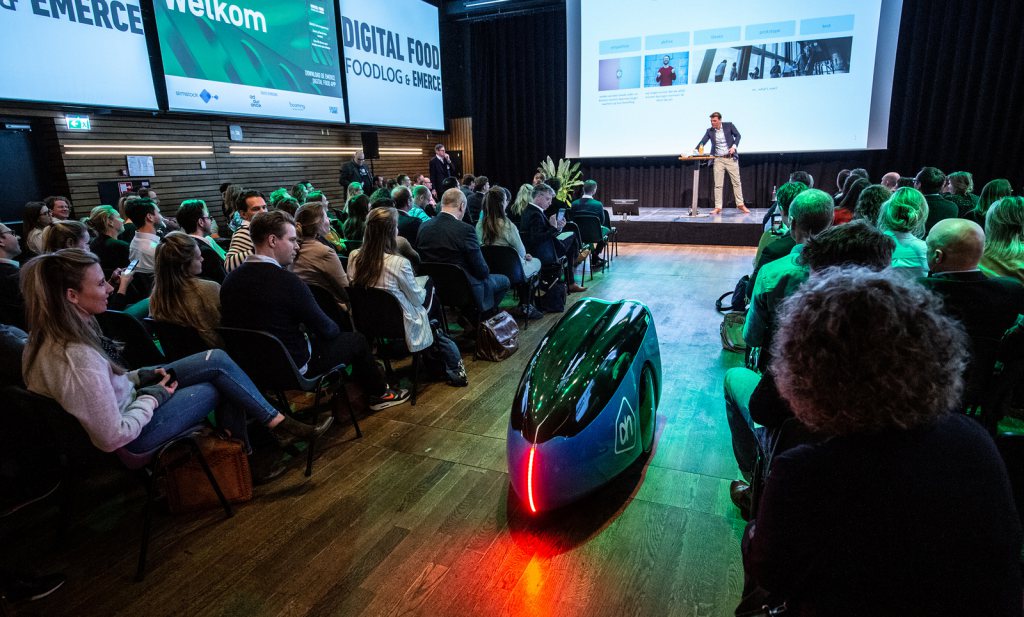
Join us if you want to know what is going on, what is at stake, and what you can do to make the world a better place by sharing value.
On Tuesday, March 2 Tiffany Tsui (Springtide Strategy) in a 45 minute chat will interview Jan Robben (Flevo Berry), Marjan de Bock-Smit (ImpactBuying), Victoria Madedor (African Farmers Stories) and Dr Ikechi Agbugba (Rivers State University, Nigeria) on making a difference for Africa. Directly after the chat, there is 45 minutes more for an informal discussion while having virtual drinks and a bite together.
Your questions are part of the game. So join us live! In case you can’t make it, we’ll post the video and are happy to take your questions and answer them on demand.
Registration is no longer possible.
Upon registration (Free! - the first rounds are on the house) you will receive a link to the ZOOM-chat.
PREVIOUS CHATS IN THIS SERIES
1. Digitisation will disrupt the food system as we know it
In the opening chat of the series, moderator Tiffany Tsui chats with panelists Paul Buisman (Moba, egg packing machines), Kristian Möller (GlobalG.A.P.), Hans de Gier (SyncForce, data integration), and Dick Veerman (Foodlog) to discuss the challenges ahead in the world of digital food. A quote from our full report of the discussion: Möller fears organisations that will want to be the center or hub for data as they will ultimately accumulate and use the power to control the physical world with data. The goal, however, must be to improve agricultural practices and farmer's incomes. What’s really key, he says, is "making sure that farmers and their data are protected and at the table where the rules are made".
Möller states the role he hopes GlobalG.A.P., allying with farmers, can play in the data sharing process. “When it comes to data and data sharing, I don’t want to be the Silicon Valley based company who has the power to misuse data. GlobalG.A.P. wants to be the custodian where farmers will share their data. Farmers trust us, because they have governance on us. When the data is being shared with others outside of our agreement, they trust us to negotiate on their behalf so that their data aren’t misused. We sit at the table, but we are not the chair and we don’t claim to be the table owner itself. We just want to be sitting on the table with our stakeholders on an equal basis and have an open discussion so that we can build trust among parties.”
The question remains open: what's the nature of a table that nobody owns or chairs? And who keeps the rules of this 'no-body's' super-governance or sanctions those breaching them?
2. Bye Manpower, Hello Machines and Value
Hans de Gier (SyncForce) explains the Consumer Goods Forum's Data Ports project. The project's goal is to make the myriad of product standards interoperable by a common basic taxonomy and connecting simple identifiers. The good news: it is fully feasible, as Hans explains in great technical detail.
There is no bad news, but just this big 'BUT'. The CGF is confronted with the One Big Unresolved Question Kristian Möller identified in the first chat. The taxonomy needs an international body and a basic infrastructure to keep the game. Yet that body has to be a global authority accepted by the world community. It cannot be owned by a set of globally operating companies, as they contribute to global sustainability, fairness and animal welfare goals from their private interests. Like roads and waterways, it should be an infrastructure owned by the international community. The Big Question: in the absence of a global authority that is aware of the powers unleashed by the digitisation of food, what 'no-body' (watch the end of the video) can guard the interests of the global community?
3. The True Code - a free global digital Passport for every Farmer and Facility
In the near future, data will travel with products. Retailers and brands need fast, cheap, and reliable data. There are several platforms (blockchains, data lakes, ERP systems) that already contain supplier and product related-data. These platforms, however, are not interconnected. Data exchange is limited and complicated. Interconnectivity and the easy exchange of data cannot do without a reliable, yet simple identification of every individual company that has a role in the supply chain. This can be done by using a unique electronic passport connected to every individual facility that is an actor in the chain.
If this sounds boring, imagine what it means for fair trade. Once you know for sure where a pineapple or mango comes from, you'll be able to check what happens there to an individual product handled by an individual and that individual and how much (or how little) it was paid for the job (s)he did. Imagine what it means for animal welfare assurance. As a consumer you'll know from the label on the pork chop you pick up in your local grocery where the pig came from, what it ate and how much, how it lived and whether it suffered from illnesses, or how it was transported and slaughtered. Marjan de Bock-Smit (ImpactBuying, founder and former CEO of SIM Supply) explains the passport should allow for seamless, reliable, and speedy Peer-to-Peer Data Exchange. The Consumer Goods Forum TRUE Code project team has asked De Bock-Smit to come up with a solution that offers a convincing answer to 6 challenges:
- Will it add value for supply chain actors if we create a facility passport with a minimum set of data fields that we need from suppliers?
- Will the True-code generation combined with a facility passport make exchange of data between platforms easier?
- Will it add value for supply chain actors if the passport has a public and a private element?
- Can we apply a verification procedure to a passport to allow companies to distinguish the difference between a verified and unverified facility passport?
- Will it add value for supply chain actors if we set a standard for verification of the facility passport?
- Can we generate the True-code and facility passport without cost?
Marjan explains the answer is 'yes' in all cases. The next phase of the project is to find cases to apply the TRUE code in real life. In the next chat, Tiffany and Marjan will talk strawberries and coffee with Dutch and African guests and prepare for a case of TRUE coded banana sourcing.
Please note that at the end of the third chat the 'global no-body' is present again, as Marjan's project is no less than the start of a global Authority issuing a unique passport. In case it takes off - and the CGF has the power to make it work - that can change the world and people's participation in our common destiny. It will make the world more inclusive by a giant leap. It's a leap that shouldn't be left to the giants of the elite. In a way 'the giant elite' of the CGF is offering it to us, the people of the world. Can that be true: multinationals and retailers as the Robin Hoods of modern global society?




